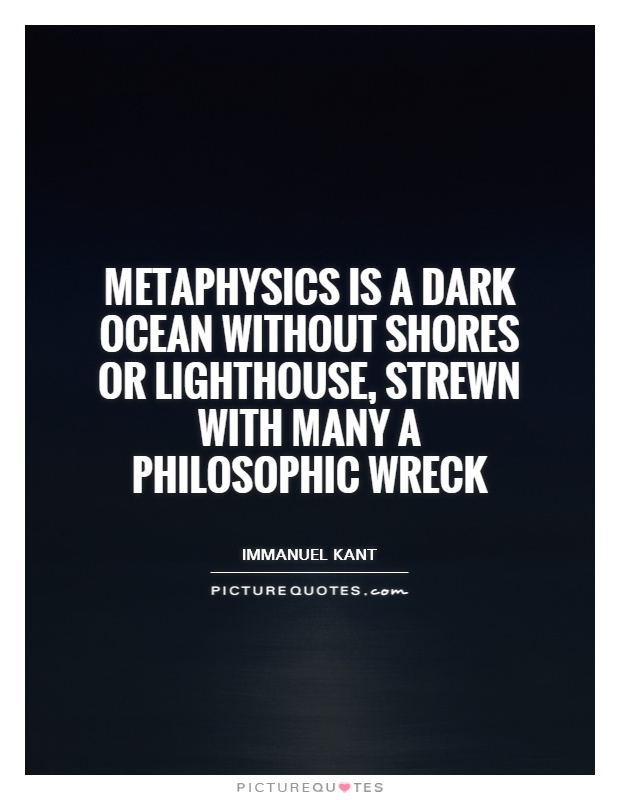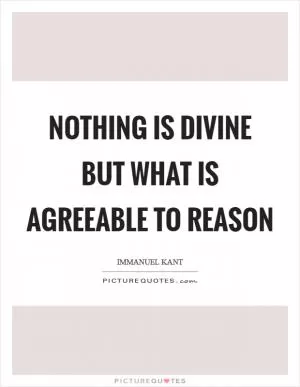Metaphysics is a dark ocean without shores or lighthouse, strewn with many a philosophic wreck

Metaphysics is a dark ocean without shores or lighthouse, strewn with many a philosophic wreck
Immanuel Kant, a renowned German philosopher, is often considered one of the most influential figures in the history of metaphysics. His work delves deep into the realm of metaphysics, seeking to understand the nature of reality, existence, and the fundamental principles that govern the universe. In his famous quote, "Metaphysics is a dark ocean without shores or lighthouse, strewn with many a philosophic wreck," Kant captures the essence of the complexity and ambiguity that characterizes the study of metaphysics.Metaphysics, as a branch of philosophy, deals with questions that go beyond the physical world and delve into the realm of the abstract and the intangible. It seeks to uncover the underlying principles that govern the universe and the nature of reality itself. However, the study of metaphysics is fraught with challenges and uncertainties, as it deals with concepts that are often beyond the scope of human understanding.
Kant's metaphor of metaphysics as a dark ocean without shores or lighthouse highlights the vast and mysterious nature of the subject. Like an endless expanse of water, metaphysics is boundless and unfathomable, with no clear boundaries or guidelines to navigate its depths. The lack of a lighthouse symbolizes the absence of a guiding light or definitive answers in the study of metaphysics, leaving philosophers to navigate the murky waters on their own.
Furthermore, the image of a dark ocean strewn with many a philosophic wreck speaks to the pitfalls and challenges that philosophers face when grappling with metaphysical questions. Just as ships can be wrecked on treacherous waters, philosophers can find themselves lost in the complexities and contradictions of metaphysical inquiry, leading to confusion and uncertainty.
Despite the challenges and uncertainties that come with the study of metaphysics, Kant believed that it was a crucial endeavor for understanding the nature of reality and existence. He sought to establish a framework for metaphysics that would provide a solid foundation for philosophical inquiry, laying the groundwork for future generations of thinkers to build upon.












 Friendship Quotes
Friendship Quotes Love Quotes
Love Quotes Life Quotes
Life Quotes Funny Quotes
Funny Quotes Motivational Quotes
Motivational Quotes Inspirational Quotes
Inspirational Quotes